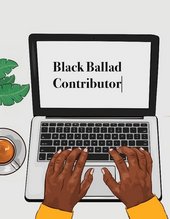I’ve always liked to move to music. I recall late nights in my parents’ flat with my dad’s speakers thumping out dub, and me in the hallway jumping in time to the beat. I have vivid memories of family parties where adults and children alike danced until the early hours, singing along with the lyrics, twirling, side-stepping, fingers-clicking, shoulders and hips rolling as the music transformed them from the ordinary relatives I knew, to extraordinary beings who seemed capable of flight.
But to be honest, I just thought that was part of everyone’s life. Dancing was just something people did, didn’t they? I didn’t have anything to tell me otherwise, and I never stopped to consider the link between dancing and the state of my mind. Mental health issues affect all humans. However statistics show that in comparison to White people, “Black women are more likely to experience a common mental illness such as anxiety disorder or depression.”
